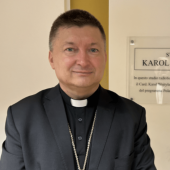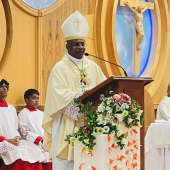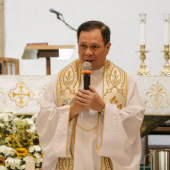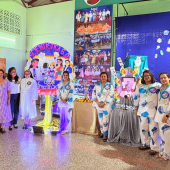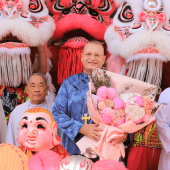Sri Lanka: Protest to Protect the Mannar Environment Reaches 100th Day

On November 10, the peaceful protest campaign against environmentally and socially harmful development projects on Mannar Island in Sri Lanka organized by the local people, reached its 100th day.
These projects, some ongoing and others proposed, have raised serious concerns about their impact on both the environment and local livelihoods.
The Catholic Church, particularly the Diocese of Mannar, the only Catholic-majority diocese in Sri Lanka, has played a leading role in this struggle grounded in faith and moral responsibility. As a result of the sustained protests, the government announced on November 4 that it would halt the construction of new wind power plants that had triggered public opposition.
While thanking the President for this announcement, the Convenor of the Mannar District Civil Society Organizations' Collective, Father Marcus, stated: "We are thankful to the President for intervening on one of the demands put forward by the residents of Mannar Island, but we will continue the protest until the remaining three demands are met."
The Three Key Demands Presented to the President:
1. Removal of the proposed wind power plant from Mannar Island.
2. Permanent solutions to the environmental and social problems caused by the 36 existing wind turbines already built on the island.
3. A complete ban on any form of mineral sand mining on or near Mannar Island.
To mark the 100th day of protest, a mass public demonstration is planned, centered on these demands.
Residents of Mannar are already experiencing several environmental and social challenges due to the wind power plants constructed on the island, including disruption to fishing livelihoods, land degradation, and loss of biodiversity.
Catholic priests and laypeople in Mannar have joined hands with other religious groups, environmental organizations, and civil society to protect the environment and the lives of local communities. Their struggle reflects the principles of inclusive development and environmental justice, embodying the spirit of Laudato Si’ and echoing Pope Francis’ call to see care for creation and care for humanity as one and the same mission.
Radio Veritas Asia (RVA), a media platform of the Catholic Church, aims to share Christ. RVA started in 1969 as a continental Catholic radio station to serve Asian countries in their respective local language, thus earning the tag “the Voice of Asian Christianity.” Responding to the emerging context, RVA embraced media platforms to connect with the global Asian audience via its 21 language websites and various social media platforms.










